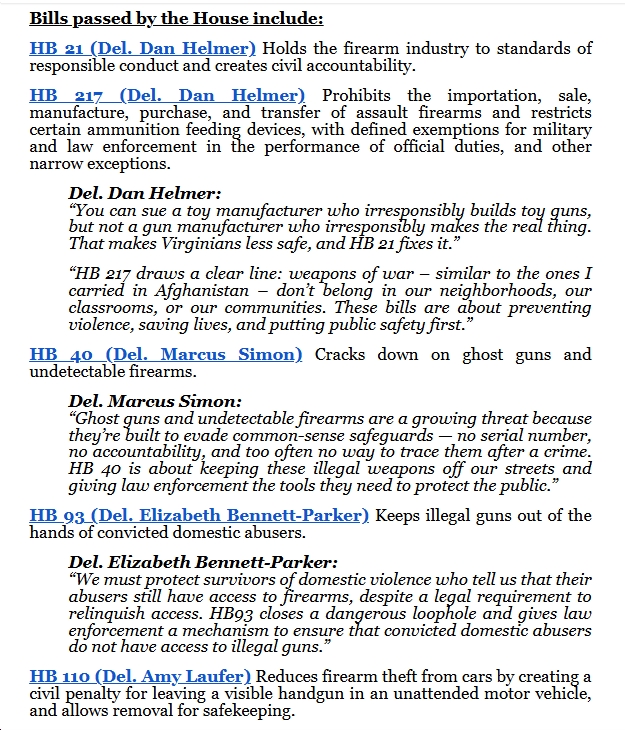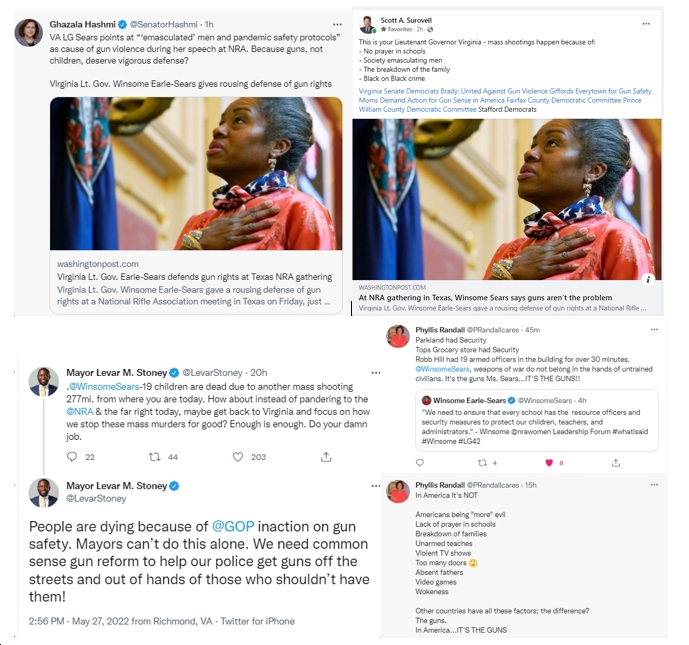by Josh Horwitz, executive director of the Coalition to Stop Gun Violence
On Tuesday, the General Assembly’s special session on gun violence prevention adjourned after just 90 minutes. Gun violence prevention advocates were outraged. Survivors felt betrayed. Across the commonwealth, Virginians were disgusted with their leadership — and determined to install leaders who will be champions for gun violence prevention.
November is just around the corner, and Democrats must continue to make gun violence prevention a priority in their campaigns. We must advocate for evidence-based policies and programs. We must address gun violence in all its forms. And we must avoid falling into Republicans’ trap of deflection and distraction. Specifically, we must reject their efforts to divert attention from guns — which killed more than 9,000 Virginians from 2008 to 2017 — to mental illness.
The pivot from guns to mental illness is common among policymakers who want an easy scapegoat for gun violence. They want to dodge responsibility for their inaction on guns by saying mental illness is the real issue. The problem is that this approach is not based in evidence.
Research shows that — contrary to what these policymakers suggest — mental illness is not a good predictor of gun violence. The vast majority of people with mental illness will never be violent, and people with mental illness are more likely to be victims of violence than perpetrators. Focusing on behavioral risk factors for dangerousness — such as a history of domestic violence or alcohol abuse — is a much better strategy for identifying individuals who are at risk of perpetrating violence. Our laws should be data-driven and focus on behavior, not diagnosis.
Not only is blaming mental illness for gun violence incorrect, it’s discriminatory. It’s deeply stigmatizing to the 1 in 5 American adults who live with mental illness. It’s fear-mongering at its worst — breeding mistrust, suspicion, and prejudice towards individuals with mental illness. It’s labeling an enormous, diverse demographic — individuals with different gifts, aspirations, interests, struggles, and abilities — categorically dangerous. It’s judging people based on diagnoses. It’s wrong.
Mental illness is an inherent characteristic like any other — but we don’t blame large swaths of the population for gun violence based on one characteristic alone. Most mass shooters are men, but we would never ban men from having guns because the vast majority of men will never be violent with a gun (not to mention the Constitutional implications). Likewise, we shouldn’t blame people with mental illness.
Our policymaking should be based on proof, not prejudice. Research shows that even if we magically cured all mental illness today, if our laws remained the same, we would still have a gun violence problem. The problem is — and always has been — easy access to deadly weapons by people who are actually at a heightened risk of violence. We must pass an extreme risk law. We must pass laws to disarm abusers. We must pass child access prevention laws. We must pass a dangerous weapons ban. We must pass universal background checks. We must invest in evidence-based prevention programs to stop gun violence in communities across the Commonwealth.
The special session is over, but our work is just beginning. To save lives, we must elect leaders who will focus on strengthening our gun laws and building our communities, not unfairly blaming people living with mental illness.
Josh Horwitz is the executive director of the Coalition to Stop Gun Violence


















